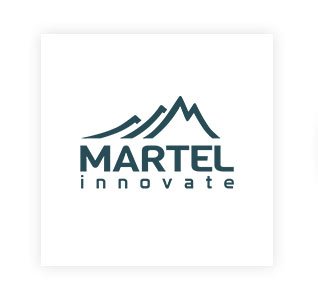Conducting the symphony of data

Cities getting smarter, and that’s creating a new set of challenges for both the cities themselves and their citizens. Living in a smart city opens up amazing potentials through new technologies, the internet of things, and big data – but these same things can raise unforeseen problems.
“The biggest problems for smart cities hinge on the management solution itself, and on how a city keeps control of its data management and citizens’ privacy rights in a world of capitalized Big Data,” said Head of Martel Lab and Orchestra Cities Chief Architect, Federico Facca. “The infrastructure issue is one of modular scalability and cost effectiveness, while maintaining the social conscience? If anything, that’s a bigger issue these days.”
>It was to address these issues, and provide an accessible solution, that Martel Lab teamed up with Therapaenis and Ubiwhere to create Orchestra Cities, an open source smart city data management platform powered by FIWAREthat is flexible enough to cover different smart city scenarios such as mobility, environment monitoring, monitoring of citizens vital signals; modular scalability; and open and accessible to the citizens.
Smart cities are a space where it is very difficult for small and medium sized municipalities to enter, due to the fact that at the moment most of the smart city offers are customized for single cities, and as a result the cost of ownership and barriers to entry are quite high. For these municipalities to become smart cities, they must have access to technology that is affordable, shared and shareable to build synergies and resources.
“When we look at smart city infrastructure, the challenges become obvious,” Federico. “First of all, scalability is an issue. Not upwards like in most software developments, but downwards.There’s a lot of focus put on large smart city deployments, as they have the budget to develop custom solutions for their unique needs – but what about small and medium sized cities? With fewer resources at their disposal, they need a more flexible, affordable solution.”
He continued, “Locking the door with private code and infrastructure stops community building and expansion. Using Open Source, allows us to attract developers who want to develop the solution and improve it for everyone. Business helps community, community helps business. Cities can invest resources in in-house to achieve their goals, increases adoption, because they’re not locked in.”
By using open APIs and open data models and standards, Orchestra Cities lowers the barriers to becoming a smart city. It is far more accessible to smaller cities, allowing them to focus on the development on added-value services as they need it rather than investing on infrastructure and infrastructure management. Furthermore, it encourages information sharing and mutual support, by allowing smaller cities to form clusters, streamline their development, and share best practices.
Another challenge that Orchestra Cities addresses is far more human – how will the data gathered be used, and how can the citizens engage with their city? Big data has an ominous reputation, one of dehumanization and monetization of private data.
“We are working towards empowering smart cities with a social conscience,” said Federico. “Big data can be used to make life better, for everyone. The key lies in how it’s used. Orchestra Cities makes data accessible to citizens, and gives them clarity on how its used.”
>Orchestra Cities is now one of the finalists with Select4Cities, an H2020 funded project that aims to work with Antwerp, Copenhagen and Helsinki to deploy a human-centric smart city solution.
“Select4Cities is an interesting project,” laughs Federico. “While on one hand, it makes us bootstrap Orchestra Cities, and gives us direct contact with three cities. This provides feedback and allows us to evaluate the progress, but it also makes it far more challenging – because expectations are high, and we have real clients to serve. Still, it’s a good incentive to do better, to create the best solution on the market. We rise to the challenge.”
To know more about Orchestra Cities, meet us at the FIWARE Summit in Porto on May 8-9, we will be presenting our demo in the exhibition area and we will be pleased to answer all your questions.
 Horizon Europe
Horizon Europe


